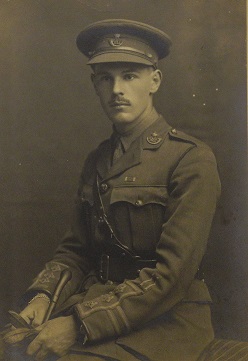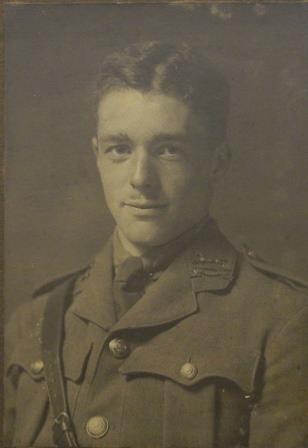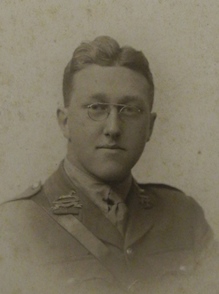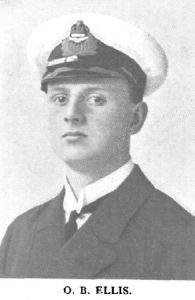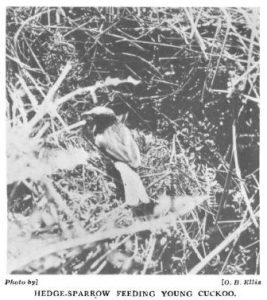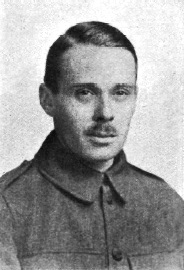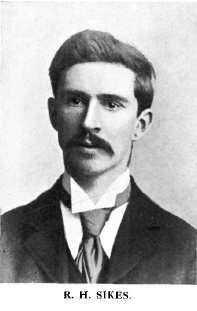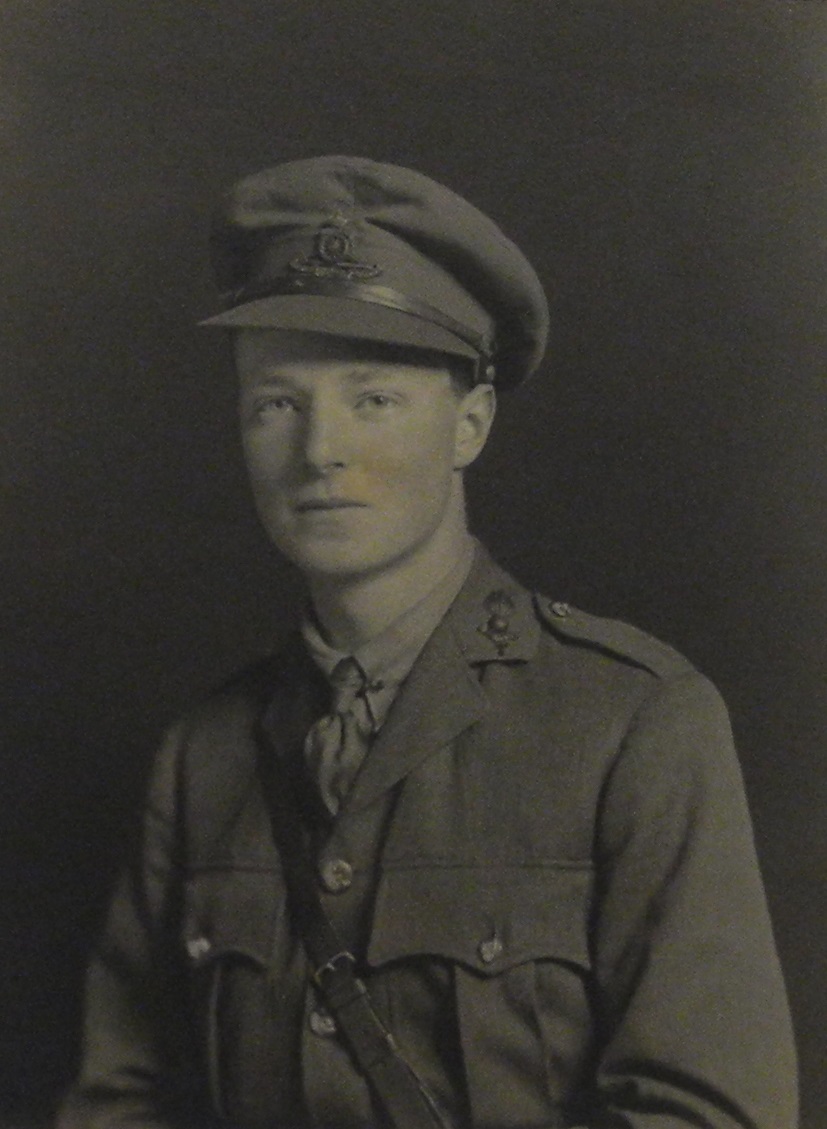
Eric Busvine Butler was killed in action near Ypres on 30th September 1917, aged 20 years.
He was born at Birmingham on 10th July 1897 and attended Bootham School from 1912 to 1914.
Eric did well at school. He won the Edgard Pickard Prizes for Instantaneous and Time Photography. In 1913, he played the part of Demetrius in the school production of “A Midsummer Night’s Dream”. The December 1914 issue of the school magazine “Bootham” records:
“E. B. BUTLER leaves from the Upper Senior after a stay of two years at Bootham. He came here from Sidcot, and, like most old Sidcot scholars, he was an excellent photographer. His hobby was ornithology, and with the help of his camera he was able to show up a very creditable diary. He was a keen footballer, and was awarded his first Boys’ colours as outside left; at cricket, too, his steady batting secured him a permanent place On the 2nd eleven. He was a steady longdistance swimmer, but owing to a visit to the Continent he was unable to stay for the Aquatics, and so lost his chance for the Cup. He leaves after passing Matric with honours.”
The same issue reports:
“ERIC BUSVINE BUTLER (1912-14) has passed the Senior School Examination (Matriculation), Distinction in Chemistry, Mathematics, and Mechanics (Honours), University of London.”
In September, 1915, Eric and another Bootham Old Scholar, John Lancelot Gibson (1910-13), obtained their commissions in the same Howitzer Brigade. The March 1916 edition of “Bootham” reports, under War Lists:
“Butler, E. B., Sub-Lieut., 4th Northumbrian Brigade, Howitzer R.F.A., Winchester. “
The December 1917 issue of “Bootham” reports::
“BUTLER.—On the 30th September, 1917, killed in action, Eric Busvine Butler (1912-14), of 57, Calthorpe Road, Edgbaston, Birmingham, aged 20 years.”
In the following May, “Bootham” magazine printed the following “In Memoriam” piece:
“E. B. BUTLER (1912-14) may possibly be remembered by one or two still at school, amongst other things as a sportsman and one of considerable athletic ability. It was in the then new Swimming Bath that he especially distinguished himself.
At the declaration of war he was with his family in Switzerland, whence it seemed at first that the chances of return were small. Some nine months later, however, he was able to come home, and on reaching the age of eighteen at once joined the O.T.C. at Cambridge. After a month of training he obtained a Commission in the Northumbrian Brigade of Howitzer Field Artillery and went through a further course in England and at camp in Ireland. In March, 1917, he went out to France and was killed near Ypres on September 30th.
His father tells us that his letters home were always cheery, but that it was noticeable in him—as, indeed, it must be in many another who has come to live upon “hand-shake” terms with death that he felt himself to have come into close touch with the realities of life.
The extract which we append from his Battery Officer’s letter, explaining the circumstances of his death, shows his complete carelessness of danger, his thought for others, and his thoughtlessness for self. After a very hot time” for three days in the most advanced gun position a shell dropped amongst the men of his battery, killing three and wounding seven.
“Butler,” the officer writes, “was in a dugout with me, and, although things were very bad at the time, he immediately went across to the men, and by his manner and example stopped all panic, and started binding up our wounded—the wounds were awful. He then arranged for the ambulance to come up, and helped to evacuate the wounded. He was simply splendid.
“We decided to send the men back then, as it was useless keeping them there any longer, but I wished to stay for a time, and Butler remained with me.
“The shelling had practically stopped, and as I came out of the dugout I noticed a fire in some old ammunition boxes. I remarked to Butler, ‘I hope that fire does not get into our dump.’
“I had hardly said the words when he ran straight over to the fire, jumped down into the gun-pit, and began throwing the burning boxes out. Two Australians came along shortly with buckets of water and managed to put it out. Butler was still in the gun-pit making sure that everything was all right, when I heard him shout, ‘ Look out! This ammunition is on fire,’ and almost instantly it went up.
“We shall miss him dreadfully, and my personal loss is great. He was most popular both with officers and men, and I hear the latter speak of him as ‘the bravest fellow they have ever seen.’
“At the time of the explosion I was blown 30 yards away, and have hardly any recollection of what took place afterwards; I can only say, your boy died the death’ of a very gallant man.”
C. E. H ., B. P .”
Second Lieutenant Eric Busvine Butler is remembered at the Tyne Cot Memorial near Ypres in Belgium.
In March 2016, a group of Bootham School History students visited the Tyne Cot Memorial. Here they are pointing out E. B. Butler’s name on the Memorial:
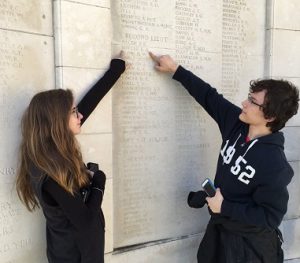
A photograph of E. B. Butler hangs in the History Department at Bootham School. In 2014, the school’s Director of Music, Paul Feehan, was inspired to write a Requiem Mass, “Deeds of Angels”, in memory of him and others like him.” He said:
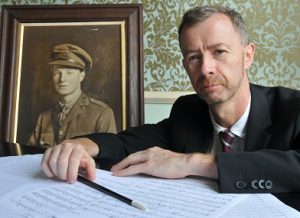
“Just recently we came upon a portrait of Eric Busvine Butler, one of our old scholars who was killed at the battle of Ypres. He was just 20 years old when he died – his young face looking out from this formal military portrait makes a deeply moving image. The requiem is for him and others like him, but it also remembers those who chose another path, that of conscientious objector.”
“Deeds of Angels” was premiered at a public performance on 14th September2014 at Bootham School.

